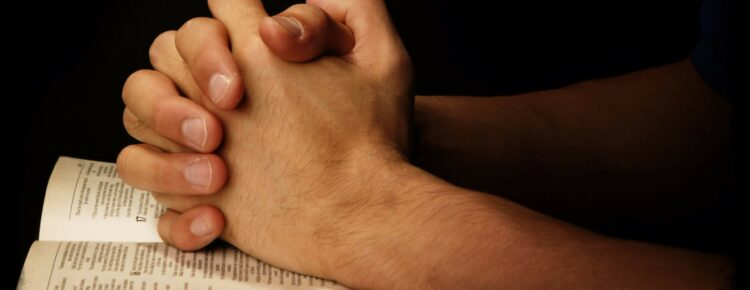PRAYER
“Devote yourselves to prayer, being watchful and thankful.”
Colossians 4:3
June
For the whole law is summed up in a single commandment, “You shall love your neighbour as yourself.” (Galatians 5:14)
Refugees are our neighbours
“Love thy Neighbour” is a deceptively difficult commandment and one that many people are proud to disregard with contempt. “No, I don’t care. Show me pictures of coffins, show me bodies floating in water, play violins and show me skinny people looking sad. I still don’t care.” (Katie Hopkins, the Sun, April 2015).
It isn’t the challenging nature of the commandment that makes it so difficult; it’s the culture we now find ourselves in. In a bid to please electors, our Government is pursuing policies that are not only against fundamental Christian ethics, they are also against what 46 other European countries uphold as International law on human rights. The issue is, of course, refugees arriving on our shores in small boats. Somehow, we have to stop them and take control of our borders. Many, many Christian, faith and human rights organisations failed to prevent the worst excesses of the Nationality and Borders Bill from becoming law and now we have the Illegal Immigration Bill that threatens to disregard the ECHR and treat refugees as criminals. Oxford University Faculty of Law even proposed that Suella Braverman and Priti Patel were aiming at an anti-immigration electorate rather than the issue itself. Their legislation plans would have no impact and were inoperable.
Note, the people coming across the Channel in small boats are“ refugees”. They are not “illegal migrants”. In International Law, there is no such thing. The new vernacular, including words like “invasion” gives the impression there is a problem of frightening proportions. The truth is that refugees seeking asylum in the UK contribute very little to the immigration figures overall. Many of them can make a very significant contribution to our economy.
But all that apart, what is the basis for how people should understand things today in the light of the Christian ethic expressed by St Paul. Two core Judaeo-Christian propositions are important: first, the concept of stewardship which entails that people are God’s appointed caretakers of the earth, responsible for nurturing and preserving nature; and second, the idea that everybody has equal right of access to the world’s natural resources that are so crucial to enabling them to fulfil their place in creation. Simple though these two propositions appear to be, philosophers have long argued about what they mean in terms of rights to property and land. Plato argued for something akin to the two propositions above but Aristotle and, much later, John Locke took the more pragmatic and individualistic approach that whoever first works the land and makes use of its resources gains entitlement to the fruits of their labours both in terms of land and property. It sounds simple and fair but it could never work in such a way as to maintain a true Christian ethic. Now, in the 21st century, what kind of violent and inhumane history lies behind land and property as it stands today? The Vatican has recently rejected the ‘Doctrine of Discovery’, a 500-year-old Catholic decree that was used to justify the seizure of indigenous lands by colonial powers. It’s astonishing that even the Catholic Church failed to acknowledge the harm done in the name of this decree.
Two recent books examine the problem in different ways. In Resident Foreigners, a philosophy of migration Donatella di Cesare argues cogently that migration is a fundamental human right. We are all temporary guests and tenants of the earth. In Trespass: Crossing the Lines that Divide Us Nick Heyes, in a book dedicated to demolishing boundaries of all kinds, explores not only the land he
stands on but the provenance of its ownership, demolishing the moral justification for exclusive rights to land.
We are where we are and we can’t easily go back, but it is our duty to try and stop the trajectory into criminalising human rights. Some argue that charities should keep out of politics but charity without politics isn’t charity. It is our Christian duty to challenge Government and our Christian duty to “welcome the stranger”.
Let us pray:
· Lord of all things that we possess, give us the clarity of vision that all You have provided for us comes from You, that in the end and at the final breath, we own nothing save the love of God through Christ!
· As we build physical and mental borders around our country, our land and our many possessions convict us that we are just stewards, caretaking what is Yours, and that it is our duty to share with our neighbours, not to coldly cut them off.
· As eager as we are to collect things, to upgrade and achieve for our own ends, remind us as in Your Son, we are here to please You, to be good caretakers of our creation, Your lands without borders and to be loving caretakers of all human hearts in need.
Amen.


